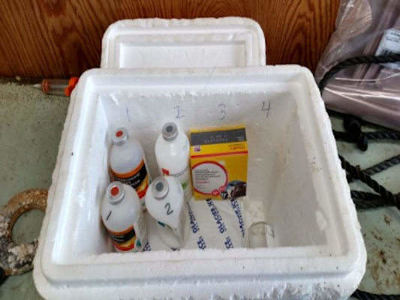When temporary power outages hit rural areas of South Dakota, animal caretakers might wonder, “How did we ever raise livestock in the days before electricity?” Electric lights, hot water heaters, and mechanical ventilation are all items that are taken for granted, except when weather events interrupt their supply of “juice.”
For a great number of operations, electricity is surely essential. Modern milking parlors with vacuum pumps and refrigerated bulk tanks can’t do without a generator when the power goes out. The inability to milk cows, even on an intermittent basis, results not only in production losses, but also in more cases of mastitis. Mechanical ventilation systems aren’t just useful to make modern hog barns comfortable for pigs, they’re essential in regulating gases and temperatures that, allowed to rise, could become a life-or-death proposition for the animal. Generators are standard equipment in those operations as well but aren’t always fail-safe and need to be continually monitored.
Water Considerations
A common use for electricity on farms and ranches during winter months is for supplying water to animals. Electric waterers allow for a consistent supply of water to livestock regardless of the temperature. When they fail, oftentimes there are no other sources for animals to turn to for water, the most important nutrient. Exceptions are the highly insulated “energy-free” waterers that use ground temperature of the incoming water to keep the water thawed.
BEEF CATTLE
Most experts agree that for short-term purposes, beef cows can utilize snow, if present, as a temporary water source. A complicating factor is that the ice that brings down power lines can create a crust over the snow that cattle have a hard time breaking through. It takes energy away from the cow’s system to melt consumed snow into water, but cows tend to “graze” on snow throughout the day, rather than take it all in at once. This effectively spreads out their use of calories so that it doesn’t seem to be a significant issue.
Effects of power outages on beef herds depends on their timing relative to cow’s stages of production. Lactating cows have an increased requirement for water; necessary steps should be taken to assure those cows do not have to get by with eating snow. Decreased milk production in beef cows can have a lasting impact on newborn calves. However, power outages can also cause problems for producers wishing to provide colostrum or milk replacers for those calves. These products should be fed as close to the calf’s body temperature (102° F) as possible; a cold dose of milk or colostrum means further chilling of the calf, along with decreased absorption of antibodies from colostrum. Steps should be taken to obtain warm water for their meals, especially in these times of cold outside temperatures.
SHEEP
Sheep seem to be able to utilize snow to a certain degree also, but it’s not enough to meet requirements for ewes in late gestation or the ones that have lambed.
HORSES
Horses drastically decrease their water intake during cold weather, while increasing their intake of forages. This creates the unfortunate possibility of colic. While case reports indicate that, on an emergency basis, horses can use snow as a water source, supplying them with a source of fresh water during power outages should be a high priority.
SWINE
An issue with hogs and water outages is that of “salt poisoning.” This is a shift in metabolism due to inadequate water intake. An excessive concentration of sodium builds up in their body fluids, resulting in central nervous system signs such as muscle spasms, seizures, coma and death. The tricky thing is that these signs become worse when the water supply is turned back on and the pigs take in a lot of water rapidly. Following a water outage, water should be supplied gradually back to the group of pigs as they rehydrate themselves. All animals are susceptible to salt poisoning, but pigs are the most sensitive.
Other Health Issues

Other, less obvious animal health issues can arise from power outages. Vaccines and other medications stored in refrigerators should be treated like food items when the power goes out: keep the refrigerator door shut unless absolutely necessary. Medications that have been subject to prolonged warmer temperatures should probably be discarded, depending upon their storage requirements. Likewise, medications that have frozen should also be discarded – many animal vaccines develop toxic compounds once they’re frozen and thawed. In a similar manner, colostrum stored in refrigerators and freezers should be evaluated once the power comes back on. Frozen colostrum that becomes thawed is still good for up to a week if refrigerator-type temperatures have not been surpassed.
Power outages bring with them a different set of circumstances to every animal operation. Questions about animal care and animal health products in the midst of electricity loss should be directed to your veterinarian or SDSU Extension livestock specialist.